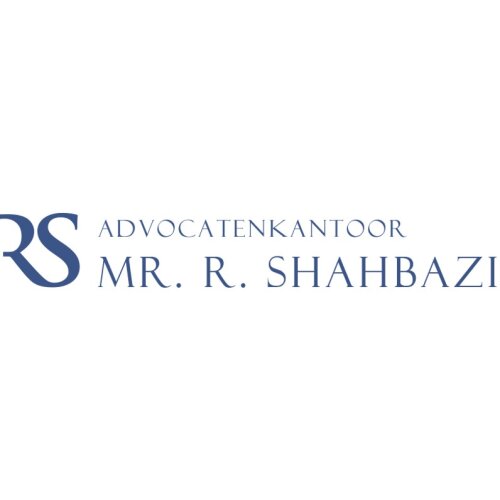Best Child Visitation Lawyers in Netherlands
Share your needs with us, get contacted by law firms.
Free. Takes 2 min.
Free Guide to Hiring a Family Lawyer
Or refine your search by selecting a city:
List of the best lawyers in Netherlands
About Child Visitation Law in Netherlands
Child visitation, also known as access or contact, refers to the arrangements made for a non-custodial parent to spend time with their children following a divorce or separation. In the Netherlands, the focus is on ensuring the child's best interest while promoting and maintaining the parent-child relationship. Dutch laws encourage continued involvement of both parents in the child's life, recognizing this as crucial for the child's development. Courts can intervene to establish, enforce, or modify visitation rights if parents can't come to an agreement on their own.
Why You May Need a Lawyer
There are several reasons why individuals might seek legal assistance concerning child visitation in the Netherlands:
- Disputes over Visitation Schedules: When parents cannot agree on a suitable visitation schedule, legal intervention might be necessary.
- Denial of Visitation Rights: If one parent is unfairly denying access to the child, legal advice can help resolve the issue.
- Modification of Existing Arrangements: Changes in circumstances, such as a new job or relocation, may necessitate altering visitation arrangements.
- Enforcement of Visitation Orders: When a parent fails to adhere to a court-ordered visitation arrangement, legal support can help enforce compliance.
- International Child Abduction Concerns: Complex situations such as international relocations may require legal expertise to navigate effectively.
Local Laws Overview
In the Netherlands, child visitation laws are governed by the Dutch Civil Code. Key aspects include:
- Parental Authority: Joint parental authority is typically maintained post-separation, which includes deciding on visitation rights.
- Best Interests of the Child: The primary consideration in all visitation matters is the child's welfare and happiness.
- Mediation and Court Involvement: Parents are encouraged to use mediation to resolve disputes before resorting to court intervention.
- Compliance and Enforcement: Court orders regarding visitation are enforceable, and violations may lead to legal penalties.
Frequently Asked Questions
What factors does the court consider in visitation cases?
The court considers the child's best interests, parental willingness to cooperate, and the relationship between the child and each parent.
Can visitation rights be denied or restricted?
Yes, if it's proven that visitation would harm the child's well-being or safety, visitation rights can be limited or denied.
How can I change an existing visitation arrangement?
Changes can be requested through the court if there are significant changes in circumstances affecting the child's welfare.
What are my options if the other parent doesn’t comply with the visitation order?
You can seek legal intervention to enforce the court order, potentially leading to legal repercussions for the non-complying parent.
Is there a standard visitation schedule in the Netherlands?
No standard schedule exists; rather, custom arrangements are made based on the child's needs and parents' circumstances.
How does international relocation affect visitation rights?
International relocations can complicate visitation and may require legal proceedings to ensure fair access to both parents.
Are grandparents entitled to visitation rights?
In some cases, grandparents may seek visitation rights if it’s shown to be in the best interests of the child.
What role does mediation play in resolving visitation disputes?
Mediation is often used to amicably resolve disputes and reach mutually beneficial arrangements without court intervention.
Can children decide on visitation arrangements?
Older children's opinions may be considered, but the court ultimately decides based on the child's best interests.
What happens if I move to a different city within the Netherlands?
Relocations can necessitate schedule changes and should be handled cooperatively or through legal adjustments if needed.
Additional Resources
For further assistance and resources related to child visitation in the Netherlands, consider the following organizations:
- Legal Aid Board (Raad voor Rechtsbijstand): Provides assistance for those needing legal help and who meet financial criteria.
- Children's Rights Organizations: Various NGOs offer advice and support concerning children's rights and welfare.
- Family Mediation Services: Professionals offering mediation help in achieving amicable agreements.
- Government Websites: Dutch government websites often feature detailed guides and resources on family law.
Next Steps
If you are experiencing issues related to child visitation or need guidance, here are steps to consider:
- Consult a Legal Professional: Find a lawyer specializing in family law to understand your options and rights.
- Engage in Mediation: Attempt to resolve disputes amicably with professional mediation before approaching the court.
- Document Issues: Keep detailed records of visitation issues to help if legal intervention becomes necessary.
- Reach Out for Support: Utilize local resources and support groups to assist with emotional and legal advice.
Lawzana helps you find the best lawyers and law firms in Netherlands through a curated and pre-screened list of qualified legal professionals. Our platform offers rankings and detailed profiles of attorneys and law firms, allowing you to compare based on practice areas, including Child Visitation, experience, and client feedback.
Each profile includes a description of the firm's areas of practice, client reviews, team members and partners, year of establishment, spoken languages, office locations, contact information, social media presence, and any published articles or resources. Most firms on our platform speak English and are experienced in both local and international legal matters.
Get a quote from top-rated law firms in Netherlands — quickly, securely, and without unnecessary hassle.
Disclaimer:
The information provided on this page is for general informational purposes only and does not constitute legal advice. While we strive to ensure the accuracy and relevance of the content, legal information may change over time, and interpretations of the law can vary. You should always consult with a qualified legal professional for advice specific to your situation.
We disclaim all liability for actions taken or not taken based on the content of this page. If you believe any information is incorrect or outdated, please contact us, and we will review and update it where appropriate.
Browse child visitation law firms by city in Netherlands
Refine your search by selecting a city.
















